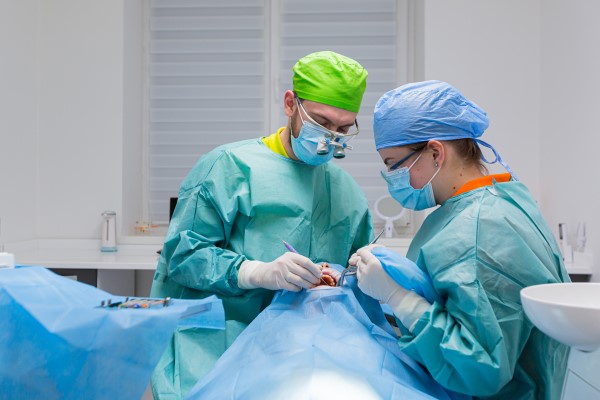Pocket Reduction Surgery: What to Expect

If periodontitis is left untreated and gets to an advanced stage, pocket reduction surgery is one of the best treatment options available. Periodontitis is a serious gum disease that causes damage to the soft tissue in your gums and destroys the bones supporting your teeth. The infection can lead to tooth decay and the loss of your tooth. Even though periodontitis is quite common, it can be prevented by practicing good oral hygiene.
What to expect during pocket reduction surgery
What is pocket reduction surgery?
Pocket reduction surgery is a dental procedure that requires your dentist to fold back your gums and remove the bacteria that have been living under the gums, causing periodontitis. If there is a severe bone loss, your dentist might perform a bone graft before they reattach your gum tissues to your teeth.
How do I know I need pocket reduction surgery?
Before deciding to undergo pocket reduction surgery, the first thing you need to do is to schedule an appointment with your dentist. Your dentist will measure the space between the affected tooth and your gums using a periodontal probe. If your dentist determines that the pockets have a depth greater than 5 millimeters, they will recommend undergoing pocket reduction surgery.
What to expect after surgery
Minor bleeding: Anytime you undergo dental surgery, some minor bleeding is to be expected. Your dentist will stop the bleeding by applying gauze to the affected area and tell you to remove the gauze after a couple of hours or when the bleeding stops.
Swelling: There is minor swelling associated with pocket reduction surgery, which typically lasts for up to two days. You can reduce the swelling by applying a cold compress to the swollen area. The best way to apply the cold compress without making your face go numb is to use it intermittently every 15 minutes.
Numbness: Since the procedure requires the use of a long-acting local anesthetic, you will experience numbness in your lips, tongue and gums for six to eight hours after the surgery. While those parts of your mouth are still numb, avoid biting your lips to prevent breaking your skin accidentally.
Discomfort: Shortly after your surgery, you will experience pain and discomfort, which can be taken care of by using the painkillers your dentist will prescribe after the surgery.
Sutures in your mouth: Since the procedure requires your dentist to cut open your gum tissue, you will have sutures in your mouth after the surgery. You will have to resist the urge to pick at it, so your gums can heal properly.
Change in diet: Another side effect of pocket reduction surgery is the fact that you will not be able to eat solid foods for at least two weeks, which means you have to get used to a diet of soft foods like soup, oatmeal, mashed potatoes, apple sauce or baby food. After the two weeks are up, you can return to your regular diet.
Conclusion
Pocket reduction surgery is an effective way to combat advanced cases of periodontitis. If you have swelling or bleeding of the gums, schedule an appointment with your dentist to find out if you have gum disease and to treat it before it gets worse and requires surgery to fix.
Request an appointment here: https://www.perio4u.com or call Perio4U Periodontics and Dental Implant Center San Jose at (408) 512-3173 for an appointment in our San Jose office.
Check out what others are saying about our services on Yelp: Read our Yelp reviews.
Related Posts
Root surface debridement is typically recommended by a periodontist for patients that have gum disease. It is a minimally invasive and safe non-surgical procedure that is performed in the periodontist’s office. This article discusses root surface debridement in greater detail.It is helpful to understand the purpose of root surface debridement and when and why treatment…
Open flap surgery from a periodontist can restore the health of your oral cavity when non-surgical techniques fail to address the consequences of gum disease. Periodontal disease, if left untreated, can cause substantial damage to the structures supporting the teeth, ultimately causing tooth loss. A flap operation can halt gum disease in its tracks and…
Our periodontist has lots of experience dealing with issues like gum disease. Gum disease is an infection of gum tissues caused by the bacteria inside plaque and tartar. These same bacteria form plaque as they feed on sugars in the mouth. It is a sticky film that coats teeth, and it turns into tartar when…
A frenectomy is an in-office procedure that can improve the function of a young child’s mouth. The treatment falls under the category of minor dental surgery. Frenectomies are quick and painless, with short recovery times. Experienced oral surgeons and dental specialists perform many of these procedures every year.Is your child’s dentist or pediatrician recommending a…
